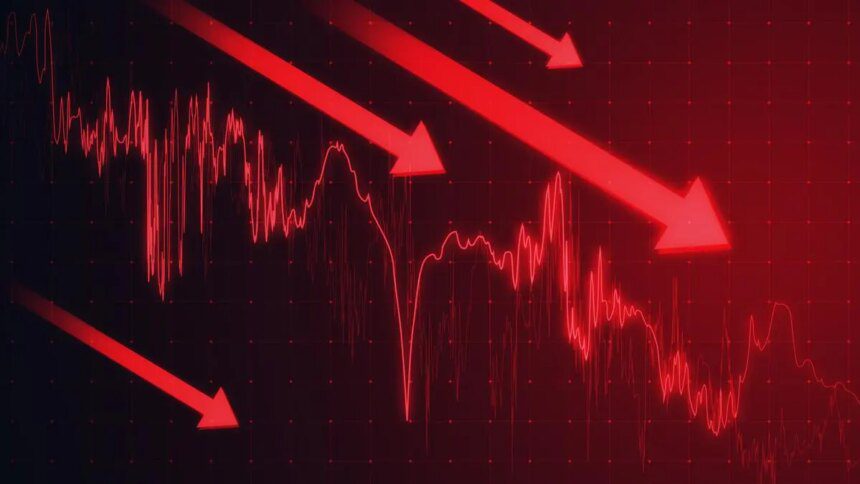Indian pharmaceutical stocks experienced significant declines during Friday’s trading session, with the Nifty Pharma index closing down 2.14 percent at 21,507.20 points. This downturn followed U.S. President Donald Trump’s announcement of a 100 percent import tariff on branded pharmaceutical products, prompting negative sentiment among investors. The sector saw heavy selling pressure, with trading volumes reaching 345.34 lakh shares valued at ₹4,640.79 crore.
Laurus Labs suffered the most, dropping 7.15 percent to ₹832.30. Biocon saw a decline of 4.78 percent, closing at ₹338.95, while Zydus Lifesciences fell by 4.35 percent to ₹974.95. Divi’s Laboratories also experienced a loss of 3.76 percent, ending at ₹5,675. Sun Pharmaceutical Industries, India’s largest pharma company, closed down 2.61 percent at ₹1,585, marking the highest turnover for the day at ₹1,146.24 crore. Only three stocks managed to end in positive territory, with Torrent Pharma leading the way with a gain of 1.59 percent.
Market analysts suggest that the impact of the tariff on Indian pharmaceutical companies may be limited, primarily affecting branded and patented drugs. Tushar Manudhane, Senior Vice President at Motilal Oswal Financial Services, stated, “Given that the duties announced are on branded/patented drugs, there would be no impact on the generics exports done by Indian pharma companies. The major portion of exports to the U.S. consists of generic medications. Thus, it is business as usual for generic pharma companies.”
Manudhane further explained that companies operating as Contract Development and Manufacturing Organizations (CDMOs) would likely remain unaffected. “CDMO companies primarily engage in the production of part of the product rather than the formulation for innovator global pharma companies. Additionally, CDMO companies serve global requirements and are not exclusively focused on the U.S. market,” he noted.
The analyst also pointed out that raw materials account for only a small percentage—around 4-5 percent—of innovator companies’ costs. “Changing the source of raw materials is a lengthy process involving multiple hurdles, including capability and compliance. Therefore, we believe there is potential for either cost absorption by the innovator or passing costs on to customers,” Manudhane added.
He highlighted the incentive for patent-holding companies to maintain market access, remarking that innovator firms tend to maximize sales during their period of patent exclusivity. Additional clarity regarding the tariff specifics is anticipated with the forthcoming executive order.
The tariff, which is set to take effect on October 1, 2025, includes exemptions for companies that have existing or planned manufacturing operations in the U.S., potentially offering some relief to firms with American facilities.










